Wondering how best to comply with disclosure guidelines?
In this article, you'll discover how to properly protect your business when participating in influencer campaigns.
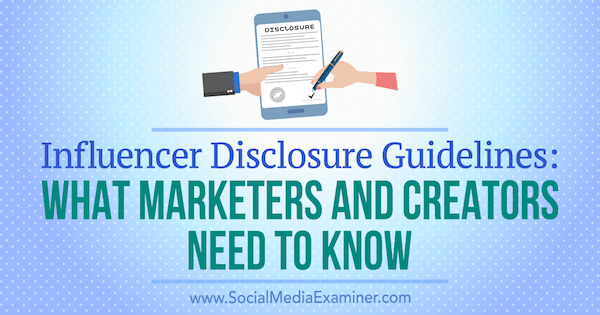
#1: Use Built-In Disclosure Tools for Top Social Platforms
One positive result from the efforts of the Federal Trade Commission (FTC) to increase transparency is that the world's best-known (and most-used) social platforms (Facebook, Instagram, and YouTube) now provide tools to help marketers comply with existing disclosure rules. Using these tools can dramatically simplify compliance efforts while also giving you peace of mind.
In March 2017, Instagram launched a “Paid Partnership with [business partner]” tag that makes it easier for creators to highlight sponsored posts in their feeds. While the feature hasn't rolled out to all Instagram users, creators and brands with access can find the tool in the Advanced Settings section when creating a post.
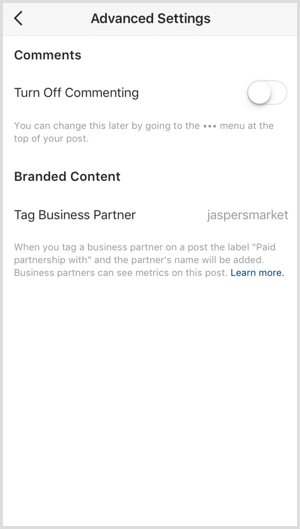
Facebook has similar branded content policies and tools to help simplify the disclosure process for marketers and creators. The first step for marketers is to ask creator partners to request access to Facebook's Branded Content Tool. They can go to this link to initiate the process.
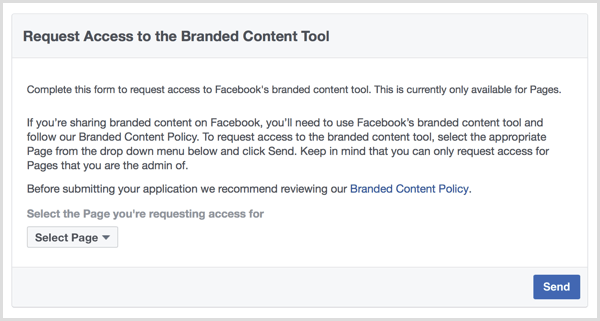
From there, Facebook lets businesses, creators, and partners tag branded content a number of ways, depending on the post type and business goal. Review the full branded content tagging guidelines in this comprehensive Facebook FAQ.
YouTube
YouTube has improved transparency by allowing you to add an optional text disclosure statement to any video campaign.
Get World-Class Marketing Training — All Year Long!
Are you facing doubt, uncertainty, or overwhelm? The Social Media Marketing Society can help.
Each month, you’ll receive training from trusted marketing experts, covering everything from AI to organic social marketing. When you join, you’ll also get immediate access to:
- A library of 100+ marketing trainings
- A community of like-minded marketers
- Monthly online community meetups
- Relevant news and trends updates
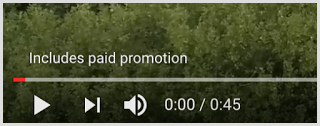
If you're working with a YouTube influencer, ask the influencer to go to their video manager in Creator Studio to complete the process. Here are the steps they need to follow:
First, click the Edit button for the video asset that requires a sponsored content disclosure. On the Info and Settings tab, click Advanced Settings below the video.
Look for the Content Declaration section at the bottom right and check the box if the video contains paid promotion.
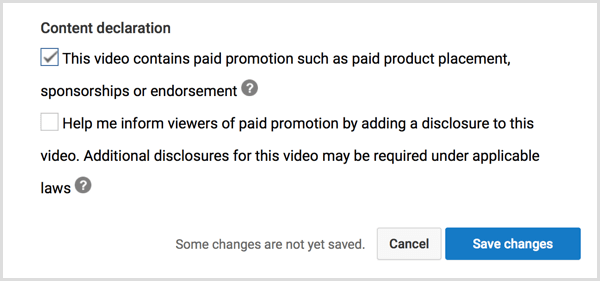
While the YouTube process isn't very elegant or simple, it's a worthwhile process that can help you avoid any future FTC disclosure issues.
#2: Follow Disclosure Best Practices if No Formal Tool Exists
What should marketers do when there are neither formal disclosure tools nor clear guidelines? The good news is the advertising industry has some disclosure best practices that apply to influencer campaigns regardless of platform. Based on this informal list and suggestions from the FTC, marketers should follow these guidelines.
Use the Right Hashtags
According to the FTC, #ad or #sponsored are the preferred hashtags for sponsored content campaigns. While other hashtags like #sp and #partner are popular, the FTC notes that it's too easy for these terms to be misunderstood or simply ignored by followers.

Discover Proven Marketing Strategies and Tips
Want to go even deeper with your marketing? Check out the Social Media Marketing Podcast! Publishing weekly since 2012, the Social Media Marketing Podcast helps you navigate the constantly changing marketing jungle, with expert interviews from marketing pros.
But don’t let the name fool you. This show is about a lot more than just social media marketing. With over 600 episodes and millions of downloads each year, this show has been a trusted source for marketers for well over a decade.

Tag the Sponsor in Branded Posts
Creators should always tag the brand account if the social channel allows it. On platforms like Instagram or Facebook, the tagging features for sponsored content are much more robust. However, nearly every social platform enables some method for linking to the sponsoring brand's account, typically using the “@[brand name]” signifier.
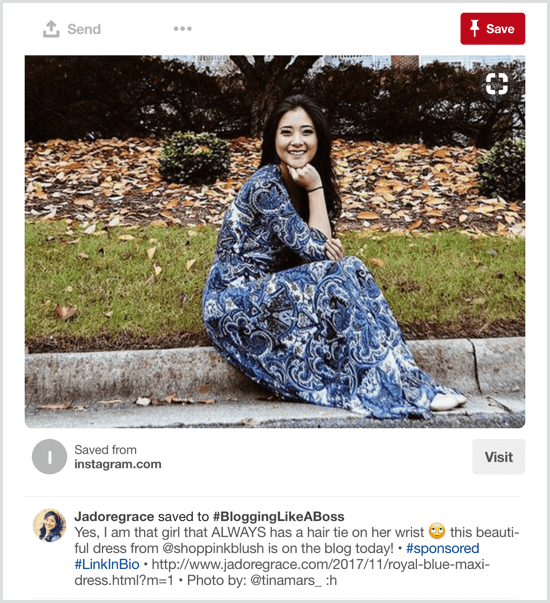
Use Umbrella Kickoff Posts
If possible, marketers and creators should plan separate posts at the start of sponsored campaigns to explain the program and preview what kind of content will be posted.
Disclose Early
Don't force a user to scroll down or click through to view a sponsored post disclosure. It should be the first thing followers see.
For further disclosure tips, check out the FTC's blog.
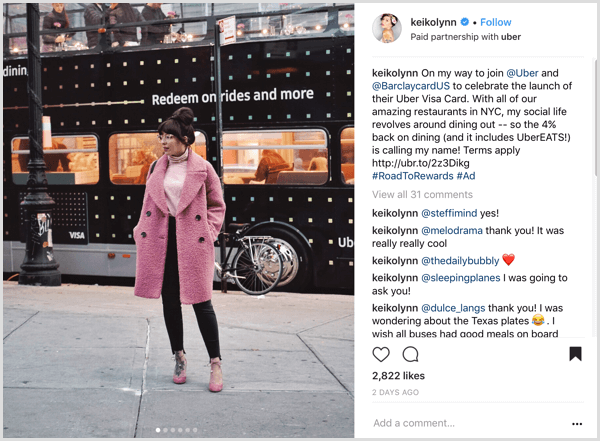
#3: Follow Industry Trade Groups to Stay Up to Date on the Latest Guidelines
In the fast-moving influencer marketing space, rules and best practices are constantly evolving. As a result, some of today's more forward-thinking ad agencies, brands, talent agencies, and creators are joining industry trade groups to share tips, create community, and establish measurement standards for sponsored content campaigns.
While a number of groups are working on this transparency issue, one of the newest is the Influencer Marketing Council (IMC). It's a constellation of agencies that hopes to negotiate directly with social media platforms and the FTC as they continue to formalize future rules for sponsored social campaigns.
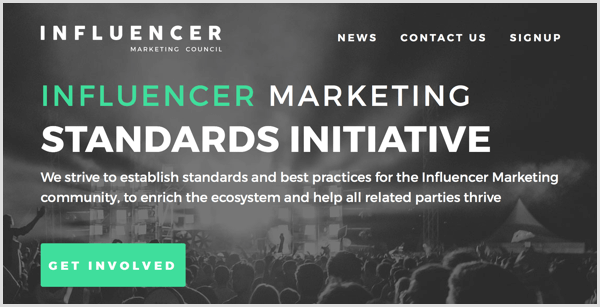
In addition to the IMC, several other ad industry trade organizations are launching working groups and resources to inform marketers and creators. In the UK, the Committees of Advertising Practice publishes guidelines and educational information about influencer disclosure on their website.
In the U.S., the Internet Advertising Bureau (IAB) is involved with disclosure rules for sponsored campaigns. Last summer, it convened a working group to develop recommendations related to the practice.
The FTC's What People Are Asking page is another great resource for marketers looking for answers. In addition to reiterating the best practices outlined above, you can find guidance on more complicated influencer situations like social media contests, online review programs, and more.
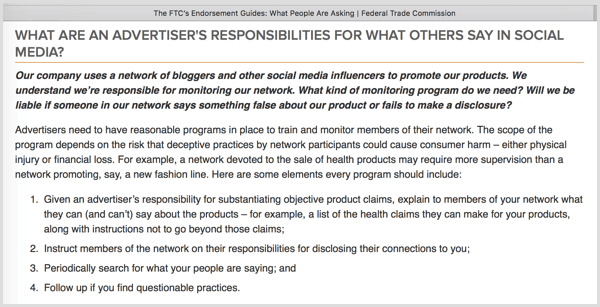
Conclusion
There's no doubt about it: Influencer campaigns are becoming a critical marketing tool for many of the world's biggest brands. But because the discipline is still relatively new, it's too easy for creators and marketers partnering with them to run into problems, causing headaches that result in legal and financial penalties.
The FTC continues to ramp up enforcement of new rules surrounding branded content. Not only has the FTC settled its first legal case against influencers Trevor Martin and Thomas Cassell, but the organization has also been sending a growing number of warning letters to prominent social users like Naomi Campbell and Lindsay Lohan who aren't adhering to proper disclosure rules.
If you take the time to study the emerging disclosure best practices for sponsored content, you can put your mind at ease. Using the built-in branded content tools on Instagram, Facebook, and YouTube is a great start. But even in situations where no formal tools exist, you should still follow the disclosure guidelines established above.
*Nothing in this article is intended to be legal advice and is for educational purposes only.
What do you think? Do you follow these best practices for branded content? Please share your thoughts in the comments below.
Attention Agency Owners, Brand Marketers, and Consultants

Introducing the Marketing Agency Show–our newest podcast designed to explore the struggles of agency marketers.
Join show host and agency owner, Brooke Sellas, as she interviews agency marketers and digs deep into their biggest challenges. Explore topics like navigating rough economic times, leveraging AI, service diversification, client acquisition, and much more.
Just pull up your favorite podcast app, search for Marketing Agency Show and start listening. Or click the button below for more information.


